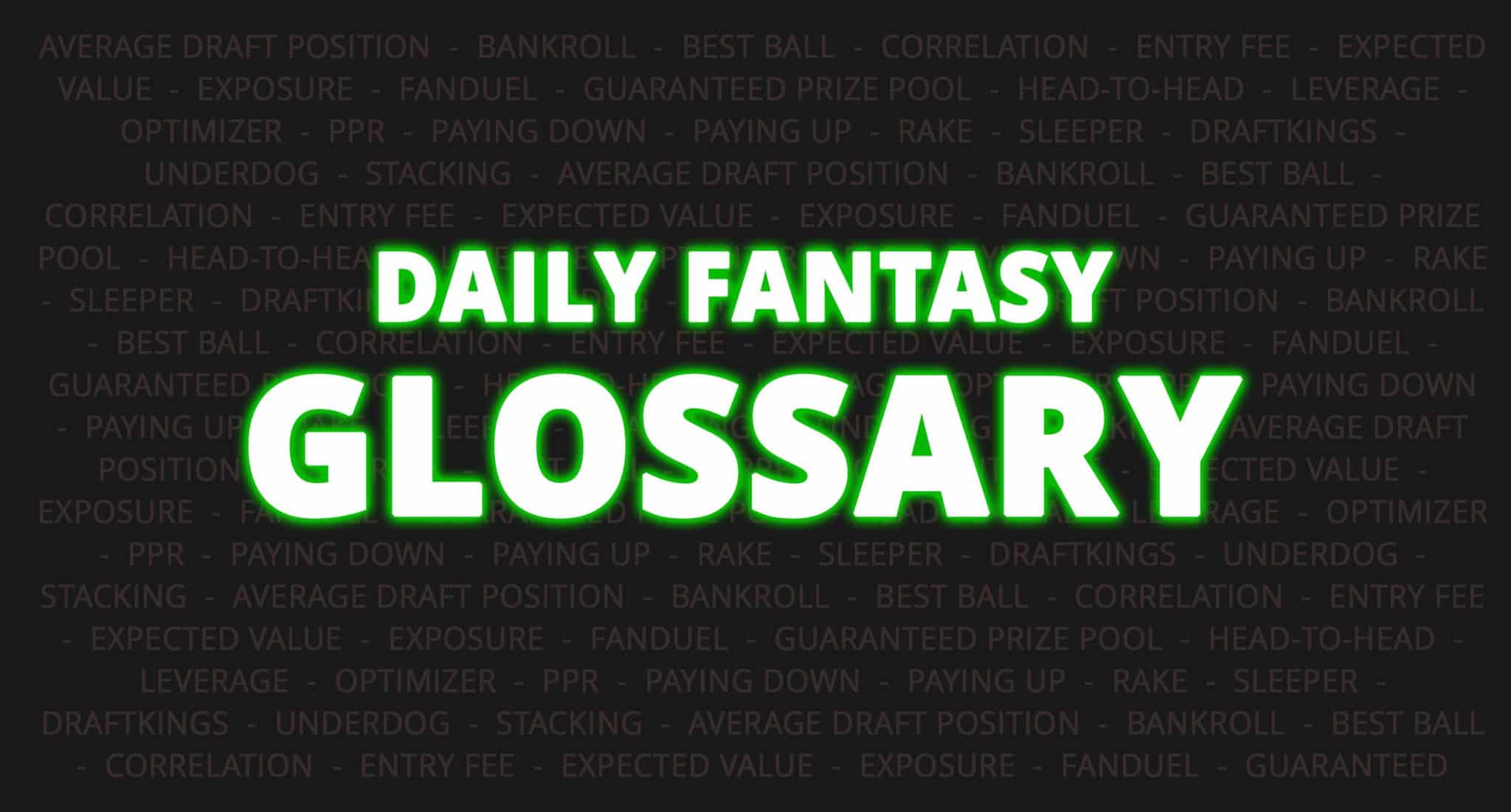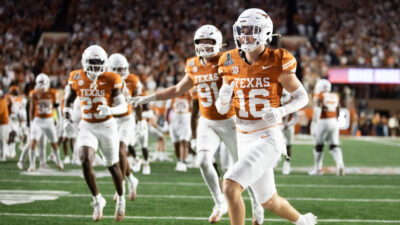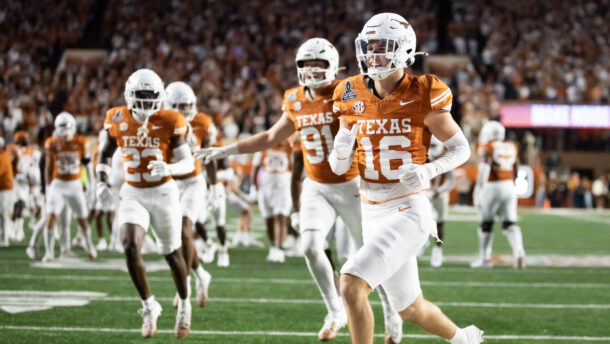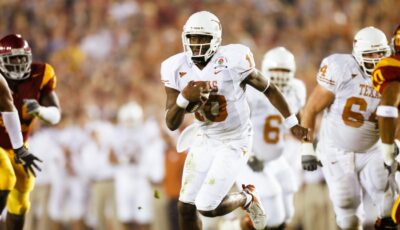DFS Glossary: Terms to know for playing daily fantasy sports
By Adam Spencer
Last Updated:

DFS (Daily fantasy Sports) is growing quickly in popularity, with millions of sports fans across the nation joining in on the action on a daily basis.
But for those who are just getting started in the DFS game, learning the lingo of daily fantasy sports is important. Whether it’s knowing the difference between a fish and a shark or a hedge and a fade, knowledge is power!
On this page, we’ll take a look at some of the most important DFS terms and explain what they mean. Pay close attention here and you’ll be a shark in no time!
50/50:
In a 50/50 contest, the top 50% of players who enter double their money, while the bottom 50% receive no money. It is also referred to as a “double-up” contest. In a 50/50 game, finishing above the “money line” is important.
Average Draft Position (ADP):
ADP tells you where a particular player is being drafted on average across all drafts of a similar type for the given season. For example, in 2023 best ball NFL tournament drafts, WR Cooper Kupp is often being drafted in the range between the 4th and 8th pick, and his ADP might be 5.1. ADP is often a guide for new fantasy users for determining when to draft a particular individual. Savvy fantasy players might use their own or third party player rankings to find value in the gaps between a potential player ranking and the current ADP.
Bankroll:
Money a player has designated to use for DFS contests. Keeping track of your bankroll is important to monitor your level of success playing daily fantasy sports.
Best Ball:
Best ball contests historically have referred to a type of contest in which you draft a fantasy roster and can participate in the contest without any further lineup setting or lineup maintenance. The system automatically uses the highest scoring players on the lineup to tally up your scoring for the day or week or game. In recent years, fantasy platforms such as Underdog Fantasy have rolled out huge GPP best ball contests (namely the Best Ball Mania contests) where best ball often refers to large GPP season long contests in various sports that utilize the best ball lineup maintenance and scoring mechanism.
Buy-in:
The amount of money it costs to enter a DFS contest. Synonym of “entry fee.”
Chalk:
Chalk is a term borrowed for the world of sports betting which refers to betting favorites. In the DFS context, it refers to picking players that are obvious, highly owned players. This is the opposite of a contrarian play. How “chalky” you are in your roster construction should, in part, be determined by the contest type. In a cash game, where you need guaranteed points and perhaps need to just win a head-to-head matchup, chalk plays can make a lot of sense. In a large-field GPP contest, it’s acceptable to make chalk picks, but you’ll also want to sufficiently differentiate your lineup from the field.
Contrarian:
The opposite of a chalk play where you select an under-owned player or perhaps make a draft pick higher than the ADP of the player.
Correlation:
A positive correlation in any context refers to when two variables tend to move together. If one goes up, they both do. If one goes down, they both go down as well. Correlation is a concept in daily fantasy and comes into play when constructing rosters. It is related to the concept of stacking. Essentially, when a quarterback has a big game, oftentimes, so does the top wide receiver on that team. There is a correlation between the QB and the WR1. This leads to the concept of stacking where you “stack” your roster with perhaps a QB-WR combo.
Deposit Bonus:
Many DFS sites (including Underdog, Sleeper and Thrive) offer first-time deposit bonuses to new users. For example, if you sign up for an account and deposit $100, you could receive a “deposit bonus” that matches that initial $100. The money received as a deposit bonus often has some conditions attached to it, such as playing through that money multiple times before it is eligible for withdrawal.
DFS:
DFS is the main abbreviation for Daily Fantasy Sports. DFS encompasses over/under contests, daily drafts, best-ball tournaments, head-to-head contests and much, much more. Real cash prizes are on the line in most DFS contests.
DraftKings (DK):
DraftKings, sometimes simply abbreviated as “DK,” is one of the biggest names in the DFS space. DraftKings has a sportsbook for online sports betting, but fans in many states that haven’t legalized sports betting can play DraftKings’ DFS offerings. Daily drafts, over/under contests, best-ball tournaments and more are available on the DraftKings app.
Entry Fee:
The amount of money it costs to enter a DFS contest. Synonym of “buy-in.”
Expected Value:
Expected value is a term commonly used in both sports betting and daily fantasy. The goal as a bettor or fantasy player is to achieve positive expected value (+EV) which essentially means you are, over time, making picks or placing bets that have a higher probability of winning as compared to the implied odds of a sportsbook (in sports betting) or higher results than the cost or ownership levels of particular player (in daily fantasy). While achieving +EV play in daily fantasy does not guarantee a positive return on entry fees in any given contest, over time, it should lead to a positive return as your sample size grows.
Exposure:
Exposure refers to how exposed you are to an individual player across your entries in a particular contest. In large GPP contests, you can often enter many times (you can enter 150 entries in Underdog’s Best Ball Mania IV). If you have 10 rosters in a given contest, and you drafted Pat Mahomes in 4 of the 10 drafts, you have 40% exposure to Pat Mahomes. If Pat Mahomes goes down early in the year with a season-ending injury, you might ascertain that 40% of your rosters are essentially toast. You might consider exposure is a risk-management metric in multi-entry contests. A general rule of thumb is to limit your exposure to players early in the draft more so than players late in the draft. In other words, high exposure to players that are responsible for a large percentage of your production on your roster(s) can be riskier than high exposure to players that aren’t relying on as much to drive results for your rosters.
Fade:
If you “fade” a particular player in a draft, it means you avoid selecting that player. For example, if you don’t think Trae Young of the Atlanta Hawks will have a good game despite his high points projection, you might “fade” him and select another player instead.
FanDuel (FD):
Like DraftKings, FanDuel is a leader in both the online sportsbook and daily fantasy space. DFS players on FanDuel will find hundreds of options every day, including head-to-head drafts, bigger tournaments and player prop contests.
Fish:
A fish is an inexperienced or lackluster DFS player. Sharks (see definition later in glossary) often like to play contests against fish to take advantage of their inexperience.
Guaranteed Prize Pool (GPP):
Guaranteed prize pool contests are contests where a set amount of money is up for grabs, regardless of the number of entrants in the contest.
Head-to-Head:
A type of draft contest where you pick a team and compete against 1 other user in a winner-take-all battle.
Hedge:
Hedging is a way of trying to limit the amount of damage to your bankroll should you lose a contest. For example, one way to “hedge” in a multi-entry daily draft contest is to use your second entry to pick a completely different group of players than your first entry.
Late Swap:
A late swap is a roster move in a daily fantasy draft contest that takes place in case of an injury (or, in some cases, a player being left out of a team’s starting lineup). It happens automatically in order to ensure every player in a contest has a full roster of active players.
Leverage:
A roster construction concept where the probability of high performance of a player or group of players is higher than the ownership levels. In large-field, guaranteed prize pool (GPP) contests, your goal is to not only construct a roster that scores as many points as possible, but also to build a sufficiently differentiated roster. Because GPP contests often have very large rewards for the top finishers in a large field, finding leverage in under owned players can be key.
Lineup Lock:
The time (usually the start of a night’s slate of games or a single game) when your lineup is set and can no longer be modified. Sometimes, a late swap (see above) will be automatically made in the case of injury.
Multi-Entry:
A multi-entry DFS contest is one that allows players to enter many different lineups into a tournament. Many larger best-ball tournaments (such as Underdog’s NFL Best Ball Mania IV contest), allow users to enter numerous times for the same entry fee each time.
Optimizer:
A tool (often found through a third party) that helps players “optimize” their DFS lineups. Optimizers may identify players who are undervalued in terms of their stat projections or their ADP.
Overlay:
This refers to the money a DFS provider has to cover in a Guaranteed Prize Pool (GPP) contest that doesn’t fill up the maximum number of entries. For example, if a GPP contest has a guaranteed prize pool of $1 million, but the total number of players entering the contest only account for a $900,000 total entry fee, the DFS provider’s “overlay” is $100,000. In these contests, DFS players often have a better chance to profit.
Paying Down:
Paying down refers to spending money on “cheap” players in daily fantasy contests so that your team’s salary doesn’t take too big of a hit. It is the opposite of “paying up.”
Paying Up:
Paying up refers to spending a significant portion of your DFS salary cap on expensive or top players. It is the opposite of “paying down.”
Player Pool:
The “player pool” is the total number of athletes available to be drafted in any DFS contest. For an NFL Week 1 slate, players from all 32 teams will be available. For an NBA late-night contest where there are only 3 games on at 9 p.m. ET or later, for example, only players from those 6 teams will be available in the “player pool.”
Player Prop:
A player prop contest is similar to an over/under bet at an online sportsbook. In DFS terms, though, player prop contests involve multiple players and their over/under lines. You must pick at least 1 player from at least 2 different teams to legitimize a contest. Then you pick their over/under line on points, passing yards, rebounds, goals scored or whatever stat you prefer.
PPR:
This stands for “point per reception” and is a term used in fantasy football contests and leagues. A “full PPR” contest awards a full point for receivers or running backs every time they catch the ball, in addition to points for whatever yards they might accrue on the play. A “half PPR” contest awards 0.5 points for every reception.
Rake:
The rake refers to the portion of money collected via entry fees that goes to the house. If 1,000 people enter a contest with a $25 entry fee, and the rake is 10%, the house is taking $2,500 of the total entry fees of the contest to pay for platform expenses (and profit), and the rest of the money goes toward the prize pool. The rake in fantasy contests is similar to how casinos make money on poker tables.
Return on Investment (ROI):
Refers to how much money you are able to make relative to the initial fee you used to enter the DFS contest.
Shark:
Sharks are smart, experienced DFS players who are always looking for an edge, like entering head-to-head contests against “fish” or scouring the over/under lines for good values.
Sleeper:
A player who is not owned in many drafts or many contests can be said to be a “sleeper.” Picking sleepers who outperform their ADP or expected value can help a DFS user win more money.
Sleeper Fantasy:
A DFS site that also offers season-long fantasy football leagues. Sleeper Fantasy has daily over/under contests for a number of sports, including NFL, NBA, MLB, NHL, college football and college basketball. The app also offers daily drafts during the NFL season.
Stack (or Stacking):
When you pair 2 (or more) players on the same team whose production correlates with each other. For example, if you draft Patrick Mahomes and Travis Kelce of the Kansas City Chiefs, you are “stacking” your lineup.
Thrive Fantasy:
Thrive Fantasy is a unique DFS app where players can draft a team of player “over/under” props. Instead of drafting players and having them accrue points, you draft a player’s prop totals and pick “more” or “less” on them in order to craft your team and compete against other users. Typical over/under contests are also available on Thrive.
Underdog Fantasy:
Underdog Fantasy is a great place to play daily fantasy sports. The easy-to-use app has pick’em contests, daily drafts, rivals matchups, best-ball contests and more. It has a wide variety of sports to pick from. There are the usual NBA, NFL, MLB, NHL and PGA contests, but Underdog also provides contests in sports like soccer, racing, WNBA, MMA, tennis, the College World Series, Korean baseball, Esports and more!
Value:
A “value” is a player who may be flying under the radar when it comes to points projection or ADP. Getting a player whose ADP is 23.5 with the 30th pick in a draft, for instance, would be considered a “value” pick.
Whale:
A whale is someone who has a large bankroll with which to enter DFS contests. Whales will often enter more expensive tournaments or put more money on the line in daily contests.
Adam is a daily fantasy sports (DFS) and sports betting expert. A 2012 graduate of the University of Missouri, Adam now covers all 16 SEC football teams. He is the director of DFS, evergreen and newsletter content across all Saturday Football brands.






